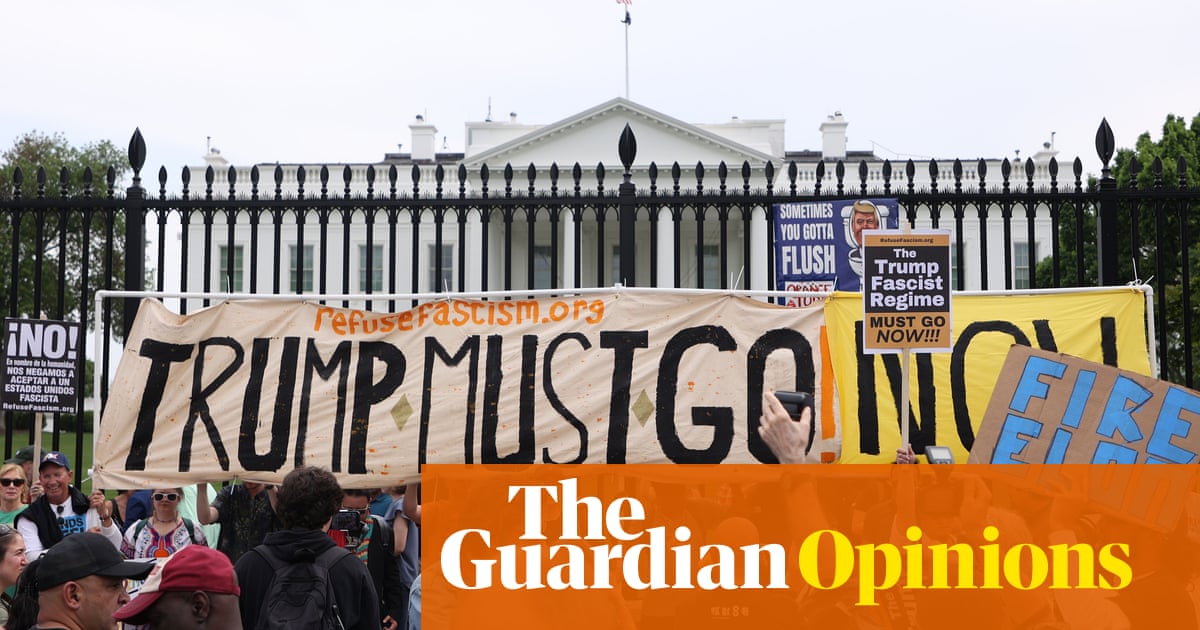Less than a week in office, Donald Trump gagged all public communications from the Centers for Disease Control and Prevention, the National Institutes of Health, and the Food and Drug Administration. Pending review by his administration, the agencies are prohibited from issuing health data updates and public safety alerts, including those concerning the H5N1 avian flu, which is spreading in poultry flocks, dairy herds, pet cats and people. Bird flu can be fatal to humans, according to the World Health Organization, from which Trump has withdrawn the US.
As precursor to his mass deportation of undocumented immigrants, the president halted asylum applications and canceled appointments already on the books. The Department of Homeland Security announced that it will raid hospitals, churches and schools, sites long off limits to Immigration and Customs Enforcement agents. But don’t blame the feds if law-abiding immigrants are swept up too, said Trump’s border czar, Tom Homan. “There’s going to be more collateral arrests in sanctuary cities because they forced us to go into the community and find the guy we’re looking for.” The Department of Justice is threatening to bring criminal charges against local officials or employees who don’t cooperate.
Spreading the pain around, the president blocked payments to local governments, contractors and workers engaged in projects funded by Joe Biden’s infrastructure laws. After some pushback, the White House clarified that money would keep going to the fossil-fuel-friendly stuff DJT likes, such as highway construction, but not to stuff he doesn’t like, including anything remotely green.
With terrifying speed, the man who invents facts, evades taxes, employs undocumented workers, stiffs contractors, and spits on the powerful and the powerless alike (but particularly the powerless) is remaking the government in his own image.
The government – meaning the people who serve the American people by keeping the government running – must fight back. Fighting back may mean continuing to do their jobs, as conscientiously and continuously as they are able.
Whether we know it or not, we depend on them to do their jobs. Butchers selling chicken and parents filling their babies’ bottles with cow’s milk depend on food inspectors and epidemiologists. Electricians and carpenters on federally funded projects depend on the full faith and credit of the US government – and the pencil-pushers in Washington – to pay them, so that they can pay their rent. Immigrants’ children depend on teachers and principals to ensure that when they get out of class, their parents won’t have been snatched from the schoolyard.
If government workers capitulate to Maga, the government folds, and we all go down with it.
Civil servants are, understandably, terrified. Under Trump’s reinstated Schedule F, renamed “Schedule Policy/Career”, tens of thousands of federal employees in “policy-related” positions are slated for reclassification as at-will apparatchiks of the Trump administration, stripped of the protections of labor law and union contracts.
Many of Trump’s other directives seem designed solely to make government employees miserable enough to quit. All federal employees now working remotely must return to the office. This will be hardest on single parents, most of them women. If they quit, Trump’s hiring freeze will prevent their replacement, which will further immiserate their colleagues left to take up the slack. “We want the bureaucrats to be traumatically affected,” crowed Russell Vought, Trump’s nominee for director of the office of management and budget (OMB), in a speech at his Center for Renewing America. “When they wake up in the morning, we want them to not want to go to work.”
In response to these attacks, unions and workers’ associations are going to court. The National Treasury Employees Union (NTEU) is suing the Trump Administration over Schedule F, which it says violates federal law by making it easy for the president to fire career civil servants, not for cause but for insufficient political fealty to the chief.
The American Federation of Government Employees (AFGE) is joining Public Citizen in a lawsuit against Trump and the OMB, over the “department of government efficiency”, or Doge, the nongovernmental non-department helmed by Tesla CEO Elon Musk to oversee the demolition. The suit asserts that extra-governmental advisory bodies are legally bound to act transparently and represent a balance of viewpoints, whereas Doge is secretive and stacked with anti-regulatory, anti-labor zealots. The American Federation of Teachers (AFT) and the American Public Health Association, along with veterans and consumer advocates, filed a similar complaint, calling Doge “a shadow operation led by unelected billionaires who stand to reap huge financial rewards from this influence and access … slated to dictate federal policy in ways that will affect millions of Americans”.
If the implementation of any of Trump’s plans violates the AFGE’s collective bargaining agreements, the union promises to “take appropriate action to uphold our rights”. But lawsuits are not the same as organizing. And only organizing, in a larger context of militant social justice activism, will give workers a fighting chance against the Maga onslaught.
after newsletter promotion
In Europe, left labor organizations are uniting against anti-immigrant and anti-queer violence, condoned and encouraged by the rising number of elected fascist governments. UNI Europa, a confederation 242 trade unions in 50 countries, for instance, has signed the Manifesto of the International Federation of Antifascist Trade Unions, launched on the one-year anniversary of a fascist-led anti-vaxxer mob attack on the Rome headquarters of the Italian General Confederation of Labor (CGIL) in 2021. The manifesto, says UNI, goes beyond labor issues to “promoting social justice, defending human rights, and strengthening democracy through collective action”. In the US, members of university faculty associations are on the frontlines of resistance to Florida Governor Ron Desantis’s “anti-woke” agenda.
Trade unions have historically aligned with socialists and communists. That’s why fascist regimes outlaw them and imprison or assassinate their leaders. But there are signs that even conservative unions may recognize that the oligarch-heavy Trump administration is not on the side of the working stiff. The Fraternal Order of Police, which supported Trump in 2016, 2020 and 2024, issued a joint statement with International Association of Chiefs of Police condemning the president’s blanket pardon of the January 6 rioters, including those who assaulted police officers.
Public servants have strength in numbers. The AFGE represents 800,000 federal and DC government workers, from nurses to park rangers to climate scientists, with 900 locals nationwide. The NTEU has members in 37 federal agencies and offices, including the IRS. The AFT represents nearly 1.7 million teachers, the police union over 377,000 cops. According to the Bureau of Labor Statistics, almost a third of public-sector workers belonged to unions in 2023, more than five times the rate of private-sector workers. Still, only 8% of US adults are union members.
But if class is knowing which side you’re on, class consciousness is understanding who is there with you. Rightwing populist movements like Maga offer a feeling of belonging, albeit what anthropologist Roger N Lancaster calls “poisoned solidarity”, the unity of people against despised others: jews, immigrants, sex offenders. American workers are not just unorganized; they are isolated and scattered. To persuade working people to trade the Maga logo for the union label – or, at the very least, vote for Democrats – organized labor must seek and welcome the temp, part-time, low-wage and precarious gig workers, from Uber drivers to farm day laborers, who make up at least a third of the US workforce.
How can the civil service fight back? By serving. A union’s most potent weapon is the strike. Paradoxically, these workers’ most radical act today would be to refuse to stop working. “We work for America” is the AFGE’s slogan. Americans must recognize and support the myriad, often invisible, services that these public servants provide us and demand that they be protected and paid to keep providing them.
-
Judith Levine is a Brooklyn journalist and essayist, a contributing writer to the Intercept and the author of five books

.png) 3 months ago
41
3 months ago
41













































